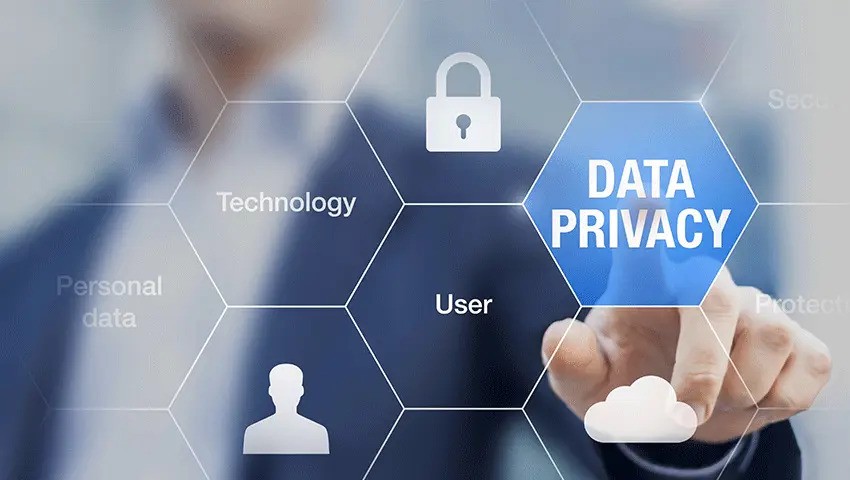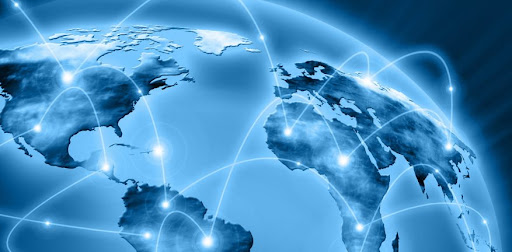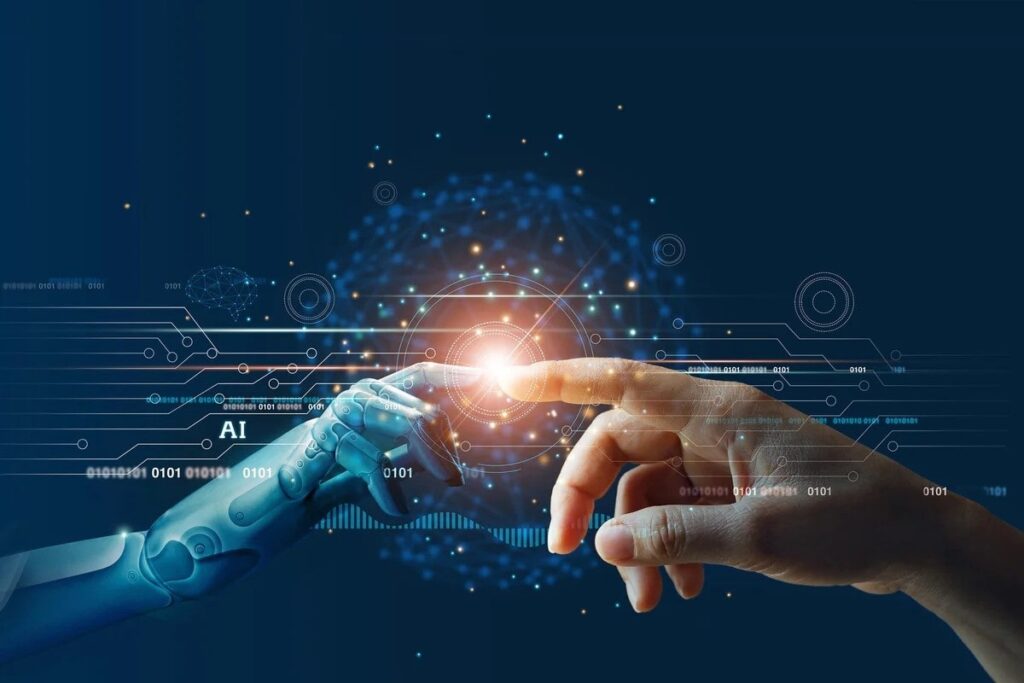When my social media account was hacked, I realized how much technology giants control the global security have over my personal security. The breach exposed not only my data but also made me aware of how dependent I am on these platforms.
Technology giants control the global security by handling huge amounts of our data and essential services. This makes them big targets for cyberattacks, affecting our privacy and national safety. We need fair rules and accountability to manage this power.
In this article, we talk about how technology giants control the global security. These big companies handle a lot of our personal data and essential services, making them targets for cyberattacks.
What Does It Mean That Technology Giants Control Global Security?
When we say that technology giants control the global security, it means that large tech companies like Google, Microsoft, Facebook, and Amazon have significant influence over various aspects of our digital lives, impacting both personal privacy and national security.
Data Collection And Privacy
These companies collect and store vast amounts of personal data from users. This data includes:
- Personal Preferences: Data on your likes, dislikes, and interests.
- Location Data: Information about where you are and where you’ve been.
- Communication: Emails, messages, and social media interactions.
By managing such extensive data, these companies can create detailed profiles of individuals, which they use to target advertisements, predict behaviors, and influence decisions.
If this data is misused or falls into the wrong hands, it can lead to identity theft, surveillance, and manipulation.
Which Companies Are Considered Technology Giants Control The Global Security?

The companies often considered technology giants include:
- Google (Alphabet Inc.): Known for its search engine, advertising services, and various online tools such as Gmail, Google Drive, and YouTube.
- Microsoft: Renowned for its Windows operating system, Office suite, Azure cloud services, and LinkedIn.
- Facebook (Meta Platforms, Inc.): Famous for its social media platforms like Facebook, Instagram, and WhatsApp.
- Amazon: Known for its e-commerce platform, Amazon Web Services (AWS), and devices like the Kindle and Echo.
- Apple: Recognized for its hardware products such as the iPhone, iPad, Mac computers, and services like the App Store and iCloud.
- Twitter: Popular for its social media platform focused on short-form content and real-time information sharing.
- Tesla: Known for its electric vehicles, energy solutions, and contributions to autonomous driving technology.
- Samsung: Famous for its wide range of electronics, including smartphones, tablets, televisions, and home appliances.
- IBM: Known for its enterprise solutions, cloud computing, artificial intelligence, and hardware systems.
- Oracle: Recognized for its database software, cloud solutions, and enterprise software products.
These companies are influential due to their extensive user bases, innovation, and impact on various industries globally.
How Do These Companies Collect Personal Data?

These technology giants control the global security collect personal data through various methods, leveraging their diverse platforms and services to gather extensive information about their users. Here’s how each of the major companies does it:
Google (Alphabet Inc.)
- Search Engine: Tracks your search queries and browsing history.
- Gmail: Scans emails for keywords and patterns.
- Google Drive: Analyzes files stored in the cloud.
- YouTube: Monitors video watch history and preferences.
- Android: Collects data on app usage, location, and device settings.
- Google Ads: Tracks interactions with advertisements and websites.
Microsoft
- Windows: Collects usage data, error reports, and system performance information.
- Office Suite: Gathers data on document usage and collaboration habits.
- Azure: Tracks cloud service usage and performance.
- LinkedIn: Monitors professional interactions, connections, and job searches.
- Xbox: Collects gaming habits, achievements, and social interactions.
Facebook (Meta Platforms, Inc.)
- Facebook: Collects data on posts, likes, comments, and friend interactions.
- Instagram: Tracks photos, videos, stories, and user engagement.
- WhatsApp: Monitors message metadata (time, date, and contact details).
- Oculus: Gathers data on virtual reality usage and interactions.
Amazon
- Amazon.com: Tracks purchase history, browsing patterns, and product reviews.
- Amazon Web Services (AWS): Collects data on cloud service usage.
- Kindle: Monitors reading habits and annotations.
- Echo: Records voice commands and smart home device interactions.
Apple
- iPhone: Collects data on app usage, location, and device settings.
- iPad: Tracks similar data as iPhones.
- Mac: Gathers system usage and performance information.
- App Store: Monitors app downloads and user reviews.
- iCloud: Collects data stored in the cloud, including photos and documents.
- Twitter Platform: Tracks tweets, retweets, likes, follows, and browsing behavior.
- Ads: Monitors interactions with promoted tweets and advertisements.
Tesla
- Electric Vehicles: Collects data on driving habits, vehicle performance, and location.
- Mobile App: Gathers information on vehicle controls and user preferences.
- Energy Products: Monitors energy production and consumption.
Samsung
- Smartphones: Collects data on app usage, location, and device settings.
- Televisions: Tracks viewing habits and smart TV app usage.
- Home Appliances: Gathers data on usage patterns and performance.
- Semiconductors: Indirectly collects data through devices using their components.
IBM
- Enterprise Software: Collects data on business processes and user interactions.
- Cloud Computing: Monitors service usage and performance.
- Artificial Intelligence (Watson): Gathers data from interactions and analytics.
Oracle
- Database Software: Collects data on usage patterns and performance.
- Cloud Services: Monitors service utilization and customer interactions.
- Enterprise Software: Tracks data related to business operations and workflows.
Common Methods
- Cookies: Small files stored on users’ devices to track browsing habits.
- Tracking Pixels: Invisible images that collect data on user behavior.
- Mobile Apps: Collect data on usage, location, and in-app behavior.
- User Accounts: Require personal information during sign-up and log-in.
- Third-Party Integrations: Share data with partnered apps and services.
These companies use the collected data to improve their services, target advertisements, enhance user experience, and develop new products. However, this extensive data collection also raises concerns about privacy and data security.
What Is Data Sovereignty?

Data sovereignty refers to the concept that data is subject to the laws and regulations of the country in which it is located or originates.
It encompasses the idea that nations have the right to control and govern data generated within their borders, including how it is collected, processed, stored, and transferred.
Data sovereignty is increasingly important in the digital age due to the global nature of data flows and the potential implications for privacy, security, and regulatory compliance.
How Do Technology Giants Impact National Security?
Technology giants can impact national security in several ways:
Data Collection and Surveillance:
Technology giants amass vast amounts of personal and sensitive data from users worldwide. This data collection can pose risks to national security if it falls into the wrong hands or is exploited by malicious actors for espionage or cyberattacks.
Critical Infrastructure Dependency:
Many aspects of critical infrastructure, including communication networks, financial systems, and transportation, rely on technologies provided by these giants. Disruptions or vulnerabilities in these systems can have cascading effects on national security.
Cybersecurity Threats:
As high-profile targets, technology giants are prime targets for cyberattacks by nation-states, criminal organizations, or hacktivist groups. Breaches of their systems can lead to data theft, service disruptions, or the spread of malware with national security implications.
Influence on Public Opinion:
Social media platforms owned by technology giants have significant influence over public discourse and opinion. Malicious actors can exploit these platforms to spread misinformation, propaganda, or divisive content to undermine national unity or manipulate political processes.
Economic Power and Market Influence:
The dominance of technology giants in global markets gives them significant economic power and influence. Their decisions regarding investments, acquisitions, or business practices can impact national economies and trade relations.
Supply Chain Risks:
Technology giants often rely on complex supply chains involving vendors and subcontractors from various countries. Vulnerabilities or compromises in these supply chains can pose risks to the security and integrity of products and services provided by these companies.
Emerging Technologies and Innovation:

Technology giants drive innovation in emerging technologies such as artificial intelligence, quantum computing, and biotechnology.
While these advancements offer potential benefits for national security, they also raise concerns about ethical implications, dual-use applications, and technological competition between nations.
Overall, the influence of technology giants on national security is multifaceted and requires careful consideration of the risks and opportunities associated with their activities, products, and services.
Regulatory frameworks, collaboration between governments and industry stakeholders, and investments in cybersecurity and resilience measures are essential to mitigate potential threats and safeguard national interests.
Frequently Asked Questions:
1. Can Technology Giants Misuse Their Power?
Yes! Big tech companies can sometimes use their power in ways that aren’t fair or good for everyone. They might control what we see online or charge unfair prices. Sometimes, they even misuse our personal information or have too much influence on politics.
2. How do technology giants address concerns related to data privacy and security?
Technology giants address worries about data privacy and security in several ways. They have clear rules about how they use people’s information, keep it safe with encryption, and regularly check for any problems.
3. How do cyberattacks on technology giants affect users?
When big tech companies get attacked by hackers, it can be bad for people like us who use their services. Our personal info, like passwords and bank details, could be stolen, leading to identity theft or fraud. It might also mean that private messages or chats could be seen by others without permission.
4. What role do technology giants play in the digital economy?
Technology giants play a central role in the digital economy by providing platforms, services, infrastructure, and tools that facilitate online commerce, communication, entertainment, and collaboration.
5. What are the long-term implications of technology giants’ influence on society?
Long-term implications include shifts in power dynamics, changes in societal norms and behaviors, impacts on democracy and governance, ethical considerations related to technology use, and the shaping of future technological landscapes.
Conclusion:
when big tech companies face cyberattacks, it can cause real problems for us users. It might lead to identity theft, fraud, or even privacy breaches. This shows how important it is for these companies to keep our information safe and secure from hackers.



